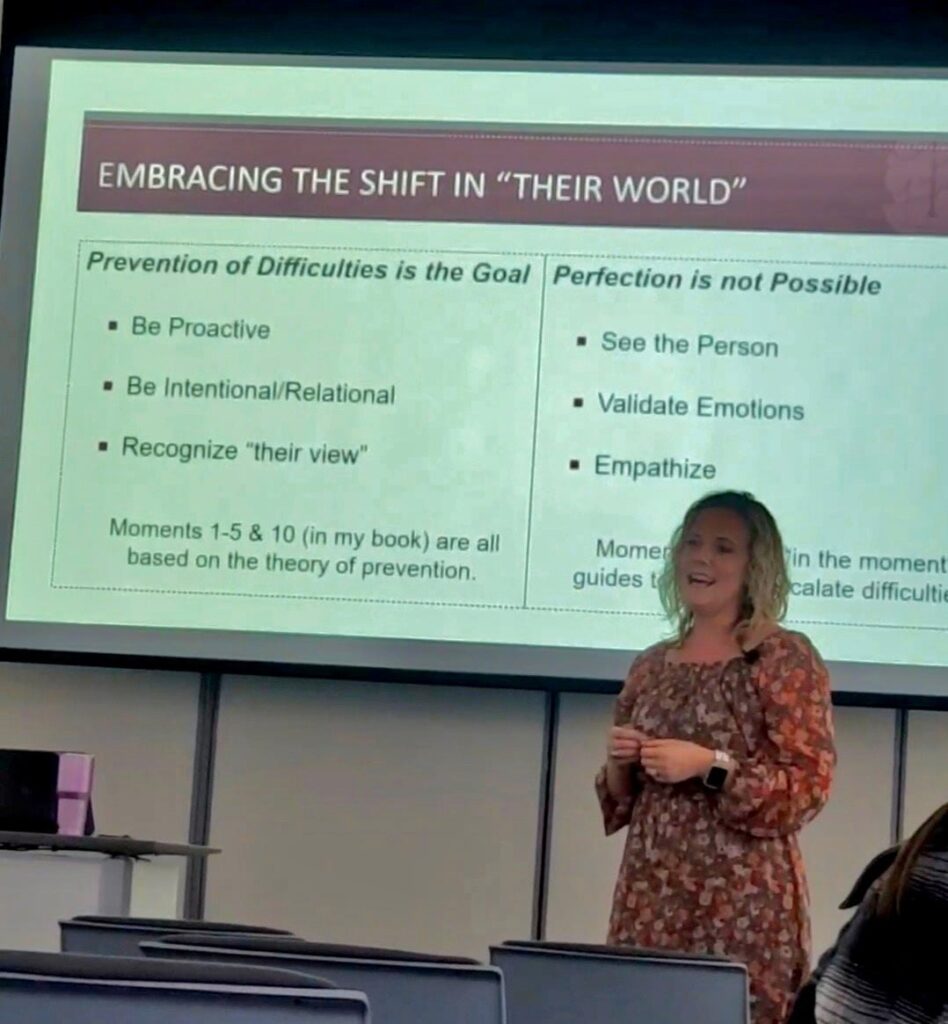When Waves Rise Book Review
alzheimerslab.com is reader-supported. I may earn a commission when you purchase via links on this page
Have you ever found yourself struggling to communicate with a loved one who has dementia? Or perhaps you’re a caregiver who wants to improve your communication skills and better navigate difficult moments with your patient.

Look no further than “When Waves Rise: Navigating Difficult Moments Associated with Dementia” by Sarah Viola OTR/L.
About the author

Sarah Viola is a well-respected expert in the field of dementia care. With over ten years of experience in the field, she has dedicated her career to improving the lives of individuals living with cognitive impairment, particularly those with dementia.
Sarah’s passion for helping people with cognitive dysfunction began when she was in college, and she worked at the North Dakota State Hospital in Jamestown, ND.
Sarah strongly believes that people living with dementia deserve to have their voices heard, and she has made it her mission to help care, providers, facilitate communication with their patients. Over the course of her career, Sarah has studied many models of dementia care and has developed specific skills that she consistently teaches to care, providers.
Let’s jump to the book review
While this book doesn’t cover every aspect of the disease, its main focus is on communication with the person with dementia, and it has many great practical tips and scenarios to practice.
As a caregiver, I can attest to the value of this book in improving the quality of life for both the patient and the caregiver. The authors provide a unique approach to caring for someone living with dementia that emphasizes the importance of solid communication and easing the terror that they may feel as their world becomes increasingly confusing and isolating.
One of the things I appreciated most about this book is that it doesn’t just provide direction on how to work through difficult situations, but it also gives background into why those situations may be happening.
It emphasizes the need to enter the reality of the patient and accommodate them in different yet loving ways. It’s a great resource not only for families but also for healthcare workers who may be caring for dementia patients.
The book is an easy read with practical information that any caregiver or family member should have to help support themselves in their journey.
I particularly enjoyed the chapters under “Insight for Specific Moments,” which give examples and ideas for caregivers to support their loved ones with dementia. The appendix and resources listed at the end of the book are also very helpful in finding more information if needed.
Overall, “When Waves Rise: Navigating Difficult Moments Associated with Dementia” is a valuable tool for anyone caring for a loved one with dementia. The kindhearted and innovative ideas presented in this book provide concrete help and imagination to rethink interactions with family members experiencing memory loss. I highly recommend it.
